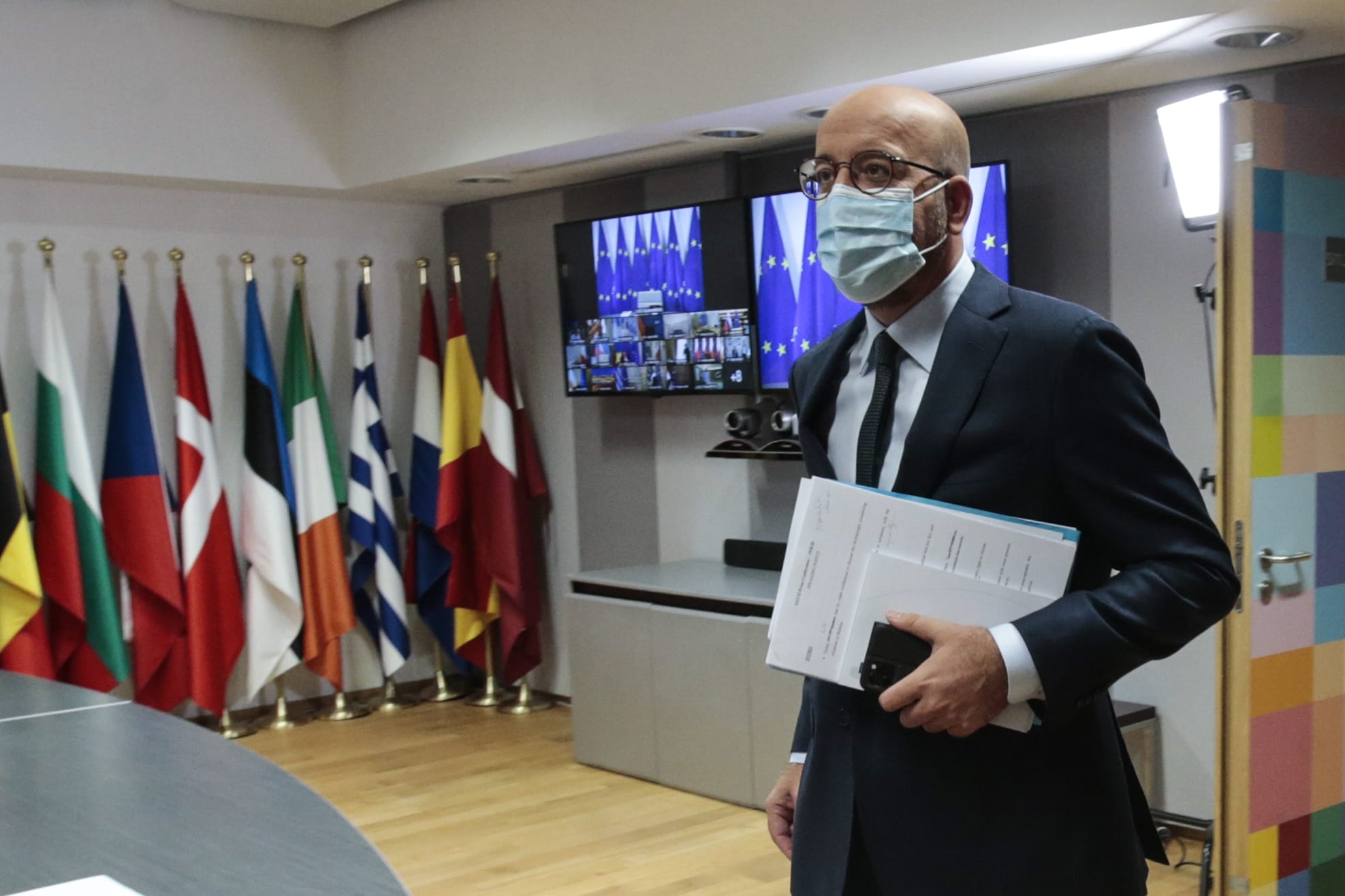
European Council President Charles Michel wears a protective facemask as he arrives at EU headquarters in Brussels, on August 19, 2020, for the start the EU emergency video summit on the crisis in Belarus.
OLIVIER HOSLET | POOL | AFP via Getty Images
The European Union announced plans to impose sanctions on Belarusian officials on Wednesday, following the contested re-election of President Alexander Lukashenko.
Leaders of the bloc held an emergency summit to discuss how best to respond to the ongoing crisis in the former Soviet republic. The EU had previously described the vote as “neither free nor fair.”
European Council President Charles Michel said in a video briefing that the bloc would soon impose sanctions on a “substantial number” of individuals responsible for violence, repression, and election fraud.
“We stand firmly behind the right of the Belarusian people to determine their own fate,” Michel said.
Opposition protesters have taken to the streets as anger grows over reports of police violence and allegations of electoral fraud and vote-rigging in the August 9 presidential election.
Lukashenko, who has been in power since 1994, claimed a landslide victory after official results gave him his sixth term in office with 80% of the vote. The authoritarian leader has denied allegations of electoral fraud.
Authorities have sought to stamp out the ongoing mass protests by using clubs, rubber bullets and stun grenades. Thousands of arrests have been made and at least two demonstrators have been killed.
Human Rights Watch, which noted most of the protests had been peaceful, described the police round-ups as “systemically brutal.”
Large state-owned factories, a traditional support base for Lukashenko, have gone on strike in solidarity with the demonstrators, and Belarusian authorities have reportedly acknowledged that some police officials have since quit their posts.
Lukashenko ordered the police to stop unrest in the country’s capital city of Minsk on Wednesday, according to the official Belta news agency, following more than a week-and-a-half of demonstrations against his leadership.
“People are tired. People demand peace and quiet,” Lukashenko was quoted as saying, insisting there should “no longer be any disorder in Minsk of any kind.”
Regional experts have drawn comparisons between the current situation in Belarus with the political uprising in Ukraine six years ago. The latter resulted in Russian military intervention and a global geopolitical confrontation.
It is for this reason that external observers are closely monitoring Russia’s response to the crisis. A traditional ally of Belarus, Moscow has said it would be prepared to offer Lukashenko military support if necessary.
Andrei Illarionov, senior fellow at the Cato Institute’s Center for Global Liberty and Prosperity, told CNBC via email that he does not believe Russian President Vladimir Putin is ready to intervene, but added that this was a “very cautious” expectation.
Putin “would like to replace Lukashenko with somebody else who would be much easier prey, who would be a much easier partner to fulfill his plan for unification,” Illarionov said.
“Putin definitely is very much interested in keeping Belarus in the Russian sphere of influence, but he’s not very interested in keeping exactly Lukashenko in power,” he added.
‘Respect the sovereignty of Belarus’
Ahead of the EU’s emergency summit, Belarus’ main opposition candidate Svetlana Tikhanovskaya called on the bloc to recognize Lukashenko’s election victory as “fraudulent.”
The 37-year-old former English teacher claimed the country’s embattled authoritarian leader had “lost all the legitimacy in the eyes of our nation and the world.”
She urged the EU to “respect the sovereignty of Belarus and the choice of Belarusian people.”
Tikhanovskaya had initially been reluctant to challenge Lukashenko after her husband was barred from running and jailed by authorities.
She received around 10% of the vote, according to official results, and has since fled to Lithuania amid fears for her family’s safety.




